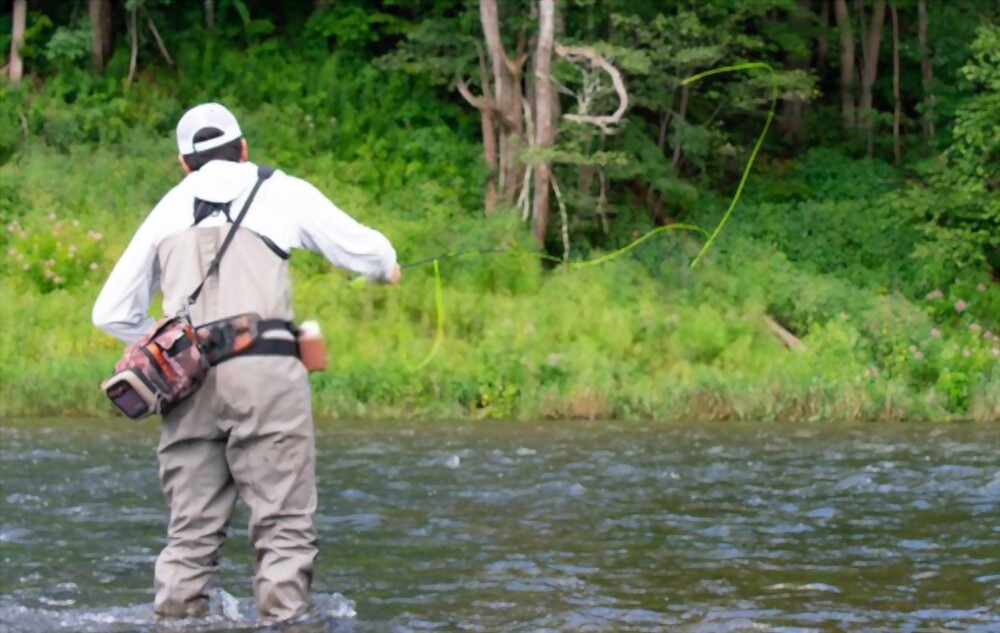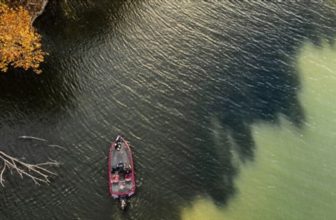
Delaware Fishing License
If you’re planning on fishing in Delaware, you’re going to need a fishing license. Whether you’re a resident or a non-resident, fishing without a license can result in hefty fines and penalties.
Thankfully, obtaining a Delaware fishing license is a straightforward process that can be done online or in-person at authorized retailers. There are various types of fishing licenses available in Delaware, depending on your age, residency status, and the type of fishing you plan on doing.
Before purchasing a license, it’s essential to understand the rules and regulations for fishing in Delaware, as well as the fees associated with each license type. In this article, we’ll guide you through everything you need to know about obtaining a Delaware fishing license so that you can enjoy the state’s abundant fishing opportunities with peace of mind.
Who Needs a Delaware Fishing License?
If you’re planning to cast a line in Delaware’s waters, you’ll need to grab yourself a fishing license! It doesn’t matter if you’re a resident or a non-resident, if you’re 16 years old or older, you’re required to have a fishing license. This includes both recreational and commercial fishing.
Thankfully, getting a Delaware fishing license is pretty easy. You can purchase one online, at a licensed agent, or at a Division of Fish and Wildlife office. The fees vary depending on whether you’re a resident or non-resident, and whether you’re getting a short-term or annual license. Just make sure you have your driver’s license or other form of identification with you when you purchase your license.
Fishing without a license can result in fines, so make sure you have your license with you whenever you’re fishing. It’s also important to note that some areas may have additional rules and regulations, such as size and catch limits, so be sure to check the Delaware Fishing Guide before you head out.
Happy fishing!
Types of Delaware Fishing Licenses
There are several options available for anglers looking to cast a line in Delaware’s waters. Depending on your needs, you can choose from different types of fishing licenses. Here are some of the most common types of Delaware fishing licenses:
- Resident Fishing License: This type of license is for Delaware residents who want to fish in the state’s waters. It is valid for one year and costs $8.50 for individuals aged 16-64. For seniors aged 65 and above, the fee is $2.50.
- Non-Resident Fishing License: If you’re not a Delaware resident but want to fish in the state’s waters, you need to get a non-resident fishing license. The fee for this license is $20 for individuals aged 16 and above. It is valid for one year.
- Trout Stamp: If you plan to fish for trout in Delaware, you need to purchase a trout stamp in addition to your fishing license. The fee for a trout stamp is $4.20 for residents and non-residents. This stamp is valid for one year and is required for anyone who fishes for trout in Delaware’s waters.
In summary, there are different types of Delaware fishing licenses depending on your needs. Whether you’re a resident or non-resident, there’s a license that will fit your requirements. Additionally, if you plan to fish for trout, don’t forget to purchase a trout stamp. By getting the right license, you can enjoy fishing in Delaware’s waters without any worries.
How to Purchase a Delaware Fishing License
You’re ready to hit the water and reel in some big catches, so let’s get started on buying your ticket to the ultimate fishing experience.
To purchase a Delaware fishing license, you have a few options. You can visit a local authorized licensing agent, which includes many sporting goods stores, bait and tackle shops, and even some convenience stores. You can also purchase your license online through the Delaware Division of Fish and Wildlife’s website or by phone.
When purchasing your Delaware fishing license, you’ll need to provide some personal information, such as your name, address, and date of birth. You’ll also need to have a valid form of identification, such as a driver’s license or state ID. Depending on the type of license you’re purchasing, you may need to provide additional information, such as proof of residency or a social security number.
Once you’ve successfully purchased your Delaware fishing license, you’ll be ready to hit the water and start reeling in some big catches. Just remember to follow all state fishing regulations and practice responsible fishing techniques to help preserve Delaware’s natural resources for generations to come.
Delaware Fishing License Fees
To get out on the water and start catching some fish, all you need is a valid Delaware Fishing License and the right gear. The Delaware Division of Fish and Wildlife offers several options for anglers who want to purchase a license.
The most popular choice is the annual resident license, which costs $8.50 and is valid for a full calendar year. If you’re a non-resident angler, you can purchase a license for $20 per year or $12.50 for a 7-day license. There are also reduced-fee licenses available for senior citizens and disabled individuals.
If you plan on fishing in tidal waters, you will need to purchase a separate saltwater fishing license, which costs $10 for residents and $20 for non-residents.
It’s important to note that Delaware Fishing License fees are subject to change, so it’s a good idea to check the Division of Fish and Wildlife website for the most up-to-date pricing information. By purchasing a Delaware Fishing License, you’re not only complying with state regulations but also supporting conservation efforts to protect the state’s fish and wildlife resources.
Rules and Regulations for Fishing in Delaware
If you’re planning on casting your line in Delaware’s waters, make sure to familiarize yourself with the rules and regulations set in place to protect the state’s fish and wildlife population.
In Delaware, it’s illegal to fish without a valid fishing license. Additionally, there are specific size limits and catch limits for certain types of fish, and fishing methods such as using explosives, poison, or electricity are strictly prohibited.
Delaware’s Division of Fish and Wildlife is responsible for enforcing these regulations, and they conduct regular patrols to ensure that anglers are adhering to the rules. If you’re caught violating any of these regulations, you may face fines, penalties, and even the loss of your fishing privileges.
It’s important to remember that these regulations are put in place to protect the state’s natural resources, and it’s the responsibility of all anglers to do their part in preserving Delaware’s fish and wildlife populations for future generations to enjoy.
In order to stay up-to-date on the latest rules and regulations for fishing in Delaware, it’s a good idea to visit the Division of Fish and Wildlife’s website or pick up a copy of the current fishing guide. By taking the time to educate yourself on these regulations, you can help ensure that your fishing experience is enjoyable, safe, and sustainable for years to come.
Frequently Asked Questions
Can I fish in Delaware without a fishing license if I am under a certain age?
You cannot fish in Delaware without a license, regardless of your age. The state requires all anglers to obtain a valid fishing license before casting a line in its waters.
Are there any restrictions on the types of fish I can catch with my Delaware fishing license?
You can catch a variety of fish with your Delaware fishing license, but there may be regulations on the size and number of certain species you can keep. Make sure to check the official guidelines before you cast your line.
How long is a Delaware fishing license valid for?
Your Delaware fishing license is valid for one year from the date of purchase. Make sure to renew it before it expires to continue enjoying fishing in Delaware’s waters.
Can I purchase a Delaware fishing license online or do I have to go in person?
You can purchase a Delaware fishing license online or in person. Online purchases are convenient and allow you to print your license immediately. In-person purchases can be made at authorized licensing agents.
What happens if I am caught fishing in Delaware without a valid fishing license?
If caught fishing without a valid license in Delaware, you may face fines and/or have your fishing equipment seized. It’s important to obtain a valid license before fishing to avoid any legal consequences.
Conclusion
So, now that you’ve learned about who needs a Delaware fishing license, the types of licenses available, how to purchase one, and the fees involved, it’s time to familiarize yourself with the rules and regulations for fishing in Delaware.
Remember, it’s important to follow these regulations in order to protect the environment and ensure that fishing remains a sustainable activity in the state. Some of the key regulations include size and catch limits for certain species, restrictions on certain types of gear, and seasonal closures for certain areas.
By following these guidelines, you can help preserve Delaware’s natural resources and enjoy a successful and responsible fishing experience. So, get your license, pack your gear, and head out to one of Delaware’s many fishing destinations for a day of fun and relaxation.







